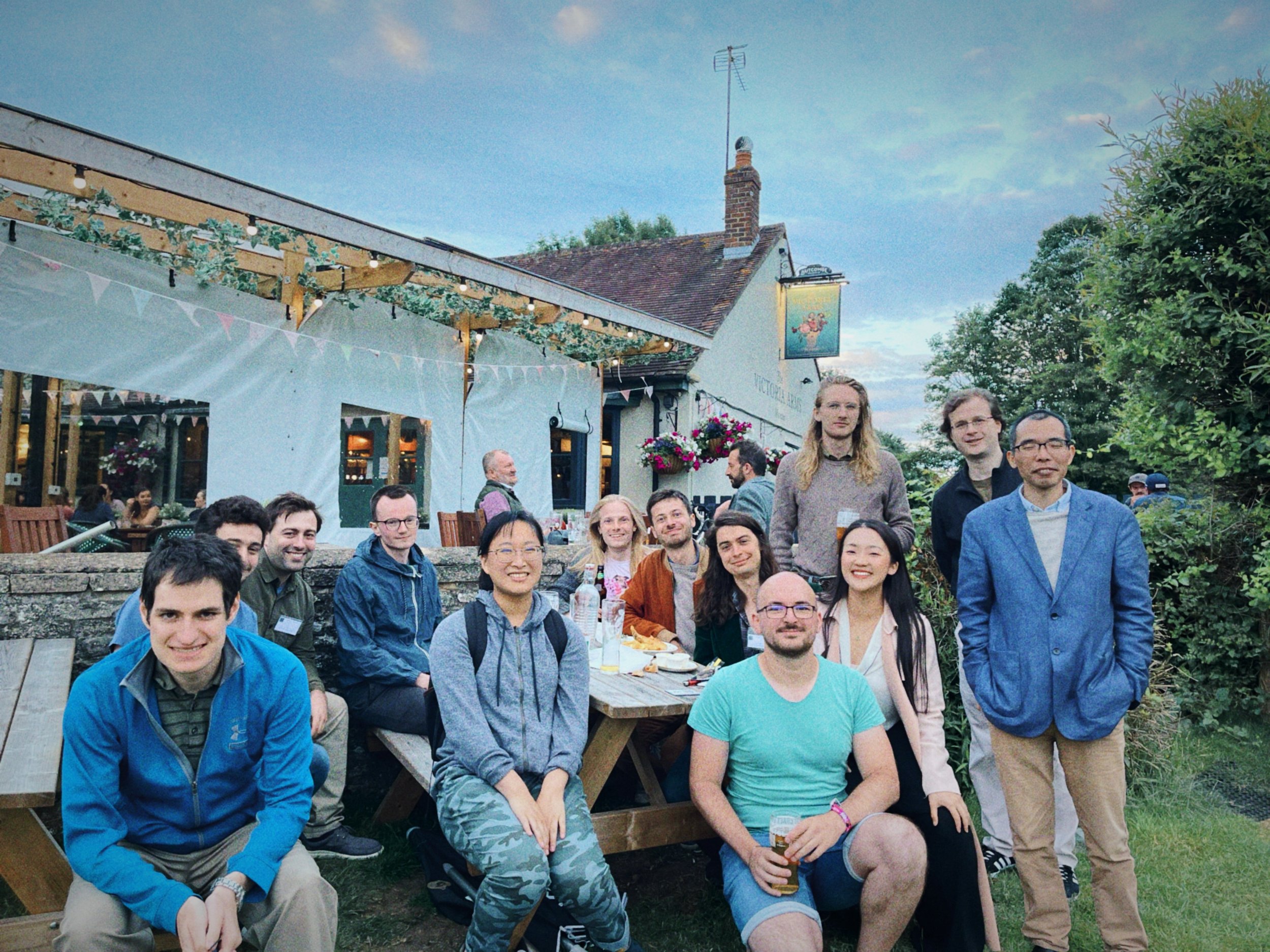Long gone are the days when I was learning about sets in Discrete Mathematics! From 2019 to 2024, from undergraduate research to master’s. 5 years, 6 papers, 3 ongoing works, many talks and stimulating discussions, numerous deadlines, countless late nights, and endless adventures. It has been a wild ride, and I’m grateful for everyone who helped me grow into the person I am today.
I wish to thank my supervisors, Michele Mosca, Julien Ross, and Peter Selinger, who taught me to stay curious about the world, to think outside the box, to be adventurous but down-to-the-earth, to be kind and generous, to work hard but also have fun! Thank you for being so patient with me and believing in me.
I wish to thank Chin Lee for being kind and heartwarming, for being fantastic at her job, for being dedicated to helping us, and for all the chats and laughter.
I wish to thank all my collaborators for helping me grow not only as a researcher, but also as a person. Thank you for your awesomeness and for brightening up my world: Michele Mosca, Priyanka Mukhopadhyay, Vlad Gheorghiu, Lia Yeh, Jiaxin Huang, Michael Vasmer, Aleks Kissinger, Arianne Meijer - van de Griend, Ewan Murphy, Andrew Glaudell, Matthew Amy, Julien Ross, Peter Selinger, Minyoung Kim, and Dohun Kim.
Lastly, I wish to thank my colleagues and mentors at PsiQuantum, I had the coolest internship I could have ever dreamed of. Thank you for welcoming me into the team, for sharing your knowledge, and all the inspiring conversations. This internship allows me to put everything in perspective, and it directly motivates the research focus of my PhD.
For everyone who I’m fortunate to meet along the journey, thank you for inspiring me and teaching me. I feel so lucky to be a part of the booming and growing quantum community.
I’m super proud of myself, for not giving up, for always being positive, for doing many things not perfectly but thoroughly, for collaborating with talented minds and learning from them, for accepting failure and rejections, for celebrating my success, and for pushing forward until the last minute.
Dear Sarah, I think you will be an amazing person, and I hope you live every day to its fullest as if it is your last day on earth.









